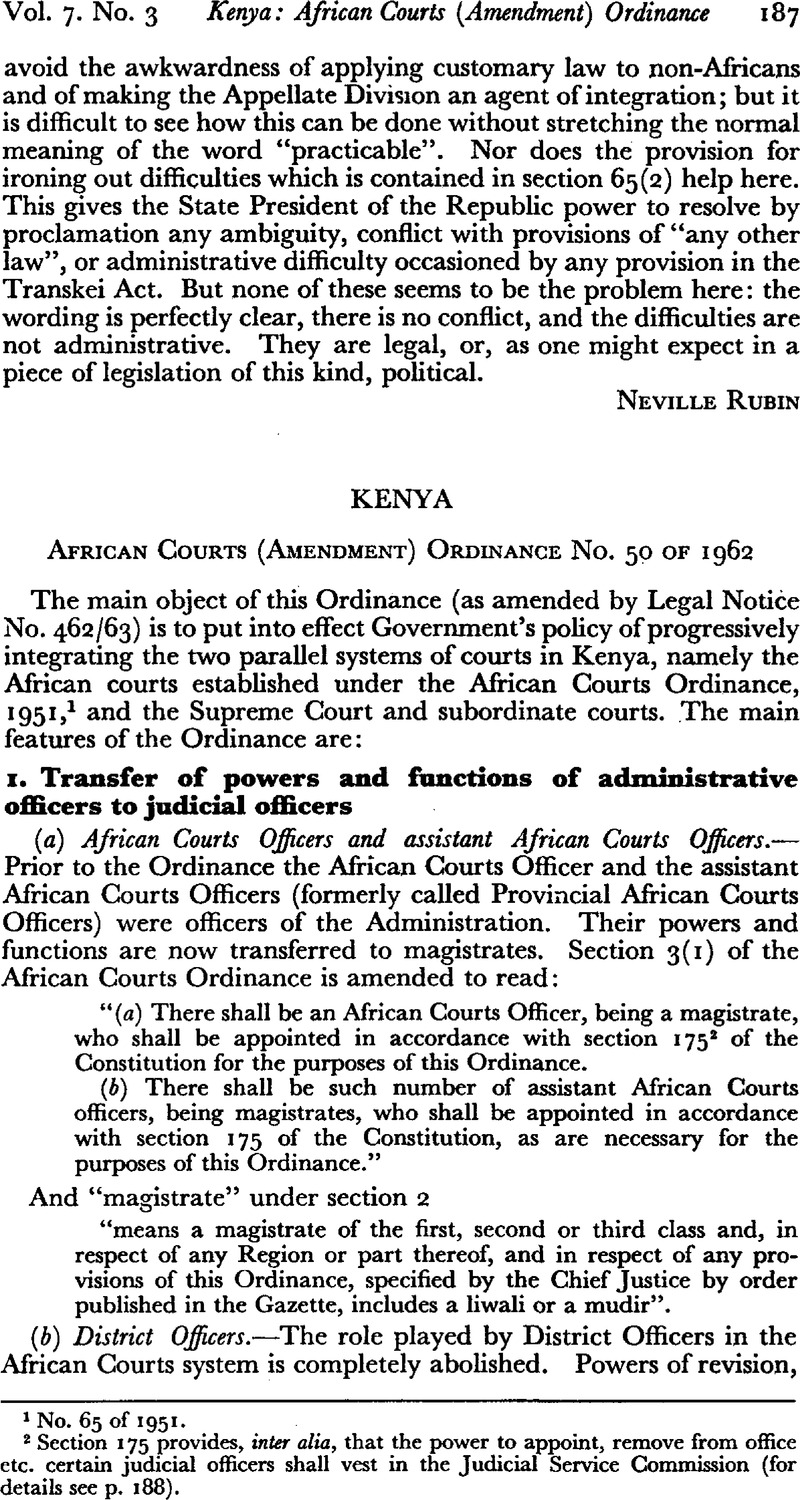No CrossRef data available.
Published online by Cambridge University Press: 28 July 2009

page 187 note 1 No. 65 of 1951.
page 187 note 2 Section 175 provides, inter alia, that the power to appoint, remove from office etc. certain judicial officers shall vest in the Judicial Service Commission (for details see p. 188).
page 188 note 1 In practice the District Officer (now called Regional Government Agent), and the magistrate is often the same person, but whereas previously District Officers exercised their powers and functions as administrative officers, now they do so as judicial officers and hence come under the control of the Chief Justice. In certain Regions, the powers previously exercised by District Officers are now exercised by District Registrars of African Courts who have been gazetted as third class magistrates.
page 188 note 2 S.I. 1963 No. 791, Schedule II.
page 189 note 1 See however p. 188, n. I.
page 189 note 2 Offences contrary to native law and custom, to which this section presumably refers, have now been recorded and defined and it is envisaged that they will shortly be incorporated into the written law. When this is done all criminal appeals will go to the Supreme Court and all civil appeals to the Court of Review.
page 190 note 1 It is probable that this provision will go when the customary offences are incorporated into the written law (see p. 189, n. 2).